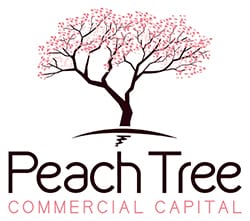Accounts receivable financing, also known as factoring, is a less familiar form of commercial financing for many business owners. This unique solution uses money owed to a company as collateral to secure the financing. There are a variety of options, so let’s see how the pros and cons line up for each.
Accounts Receivable
Accounts receivable financing is the most common type of factoring, leveraging future payments so that they can be put to work immediately. The funding of A/R financing is based on the value and age of a business’ receivables, with the financer charging a factor fee based on how long it takes for the receivables to be obtained. Most commonly the invoices are entirely signed over to the factoring company. The factor then collects the payments directly from the customers.
The key benefit of accounts receivable financing is their versatility. The funding that comes in from this loan can be used in virtually all aspects of a business daily operations. They are also free from the need for additional collateral, making them highly attainable for companies who have been denied in the past due to low credit scores or lack of collateral.
Purchase Orders
Purchase order financing is a bit more complicated than accounts receivable. Purchase order financing is used to fulfill a specific customer order and cannot be used for other aspects of daily operations. Additionally, the lender evaluates the credit rating of the customer, not the company. If the customer has a good credit score the funding is easily attainable. This also ensures that the lender won’t need additional collateral and makes the loan attainable for companies who have previously been denied a loan based on credit history. The downside of this is that if the customers’ credit score is low the financing can be difficult to obtain.
Merchant Cash Advance
A merchant cash advance is not a loan. Instead, this financing is an upfront lump sum payment that is advanced to a company in exchange for a portion of that company’s future sales. The financing agency is directly paid a specified percentage of future credit card transactions until the loan is paid in full.
Unlike most financing, which is paid in monthly installments, MCAs often have daily or weekly repayment schedules. In addition, cash advances are known for having extremely high-interest rates. When extended to an annual time frame this financing can even have triple-digit interest rates!
Limited Recourse Factoring vs. Non-Recourse Factoring
Limited recourse factoring and non-recourse factoring are similar concepts, with vastly different means of obtaining funding. Both of them provide funding based on incoming invoices, and both provide capital that can be used in all aspects of a company’s day to day operations. However, the security of the loan is held differently in each. In limited recourse financing, the lender will take a loss on the loan if the invoices are not paid, while full-recourse factoring requires that the borrower repay the loan for any accounts which are not paid by the customer.
While limited recourse factoring is the more desirable of the two due to its lower interest rate and the risk on the loan being taken by the lender, it is more difficult to obtain, with many lenders wanting to see frequent repayment of overdue accounts and a great credit score. Full recourse factoring is easier to obtain but does bring with it slightly higher risks.
Contract Financing
Contract financing monetizes current contracts to allow a business quicker access to revenue. Rather than waiting to collect on your contracts, these allow businesses to start projects faster and eliminate the waiting for payment from clients. The funding obtained from these contracts can be used for daily business operations, with funding being worth about 80% or more of the total contract.
Managing cash flow can be a frustrating part of any business. The need for capital to move forward with your goals, versus the struggle of getting paid can cause headaches. Factoring can help solve these problems and allow you to focus on the day to day operations of your company. If you would like to learn more about factoring, or other forms of commercial financing, we can help.

